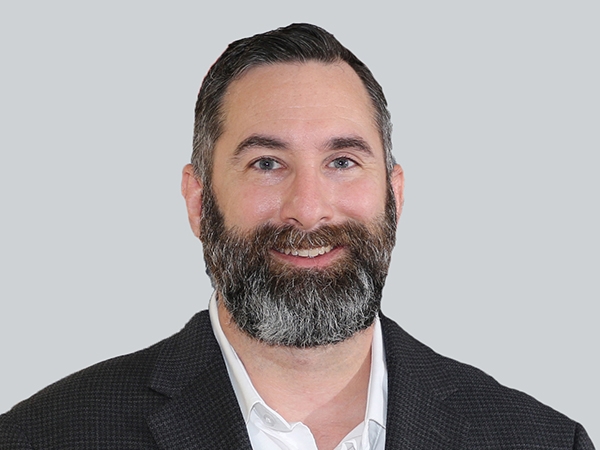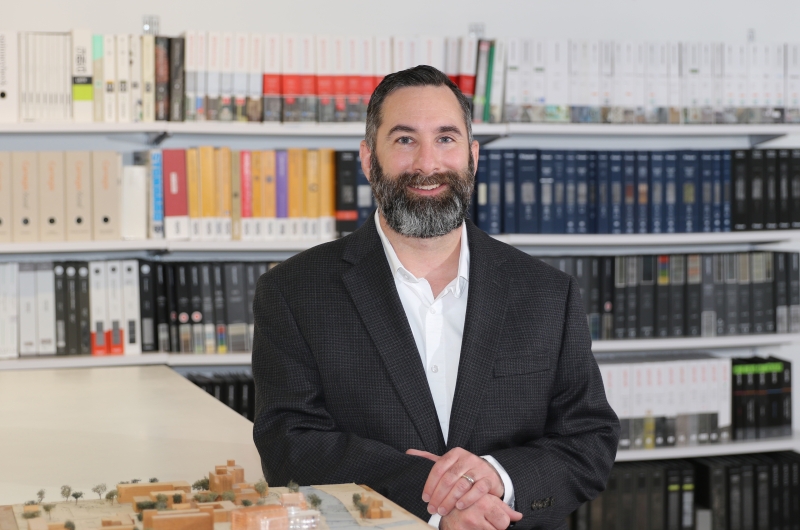
Unscripted: Hollywood Dreams to Battlefield Realities to A&E Impact
From the sound stages of Hollywood to the world stage in the Middle East to the high-impact spaces of architecture, one thing in my career has remained constant: my passion for storytelling.
From an early age, I was fascinated with the military and joined the U.S. Army Reserves shortly after turning 17. At the same time, I was equally engrossed in theater. Monthly unit drills often competed with weekend theater performances. Eventually, the theater won, and I drove to Los Angeles after graduating college. LA is not New York, but it was generally understood that screen actors made more money than stage actors, and more work was available.
Being a Hollywood extra taught me the business and enabled me to join the Screen Actors Guild. Filmmakers go to great lengths to portray indelible characters, weave incredible stories, and suspend reality, and I had a backstage pass.
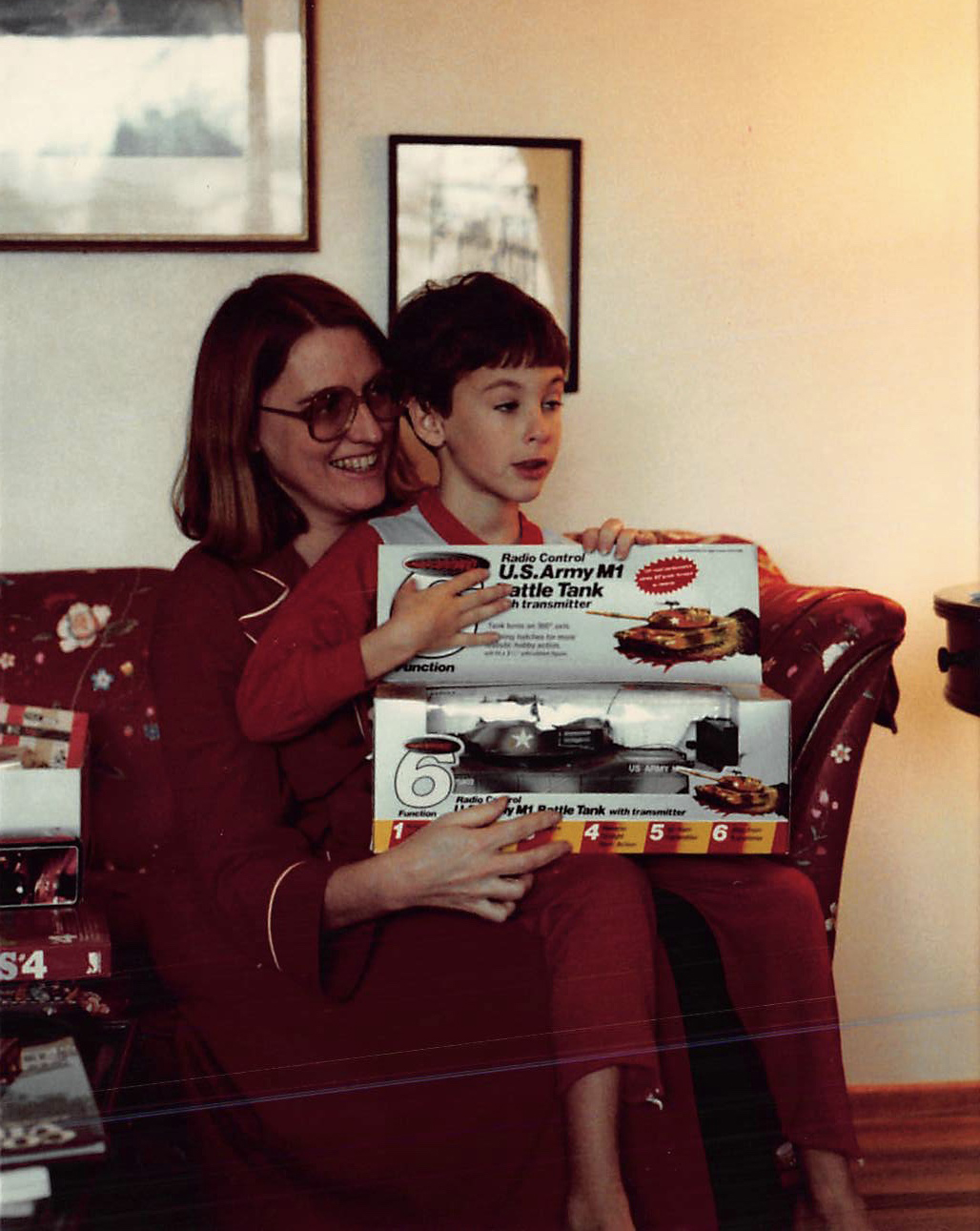 I landed a recurring featured extra role as a commando on season 4 of Buffy the Vampire Slayer. As one of only a few guys with military experience, I was busy most of the season. I drove a Humvee, taught others how to march and conduct facing movements, and received extra money to choreograph a particularly intense standoff between the heroes and a group of commandos.
I landed a recurring featured extra role as a commando on season 4 of Buffy the Vampire Slayer. As one of only a few guys with military experience, I was busy most of the season. I drove a Humvee, taught others how to march and conduct facing movements, and received extra money to choreograph a particularly intense standoff between the heroes and a group of commandos.
On the set of the movie 13 Days, I got to deliver a line. This was my three seconds in the spotlight, and it included a significant pay increase. My last residual check for that role was 6 cents. My time in LA was memorable, but three years and dozens of true Hollywood stories later, the glamor of “the biz” was wearing off, and the Army was calling – my college degree allowed me to go straight to Officer Candidate School. It was March 2001.
Those old enough know exactly where they were on 9/11. I was at Fort Benning, Georgia, in the woods. We had been up all night conducting dismounted operations. After sunrise, we rested in a small clearing. My boots and socks were off to let my feet dry out. I leaned back on my rucksack and pulled my patrol cap over my eyes. Then, a member of the cadre said a plane had crashed into a building in New York. Details were sparse. We were willing and ready to deploy, but our training continued.
As a 2nd Lieutenant, the Army selected me to be an armor officer, and I was assigned to A Company, 1-68 Armor Battalion, as the leader of the 1st Platoon. My call sign was Viper One. I participated in multiple training exercises the year before receiving deployment orders. The invitation to war beckoned, but it was no Hollywood set.
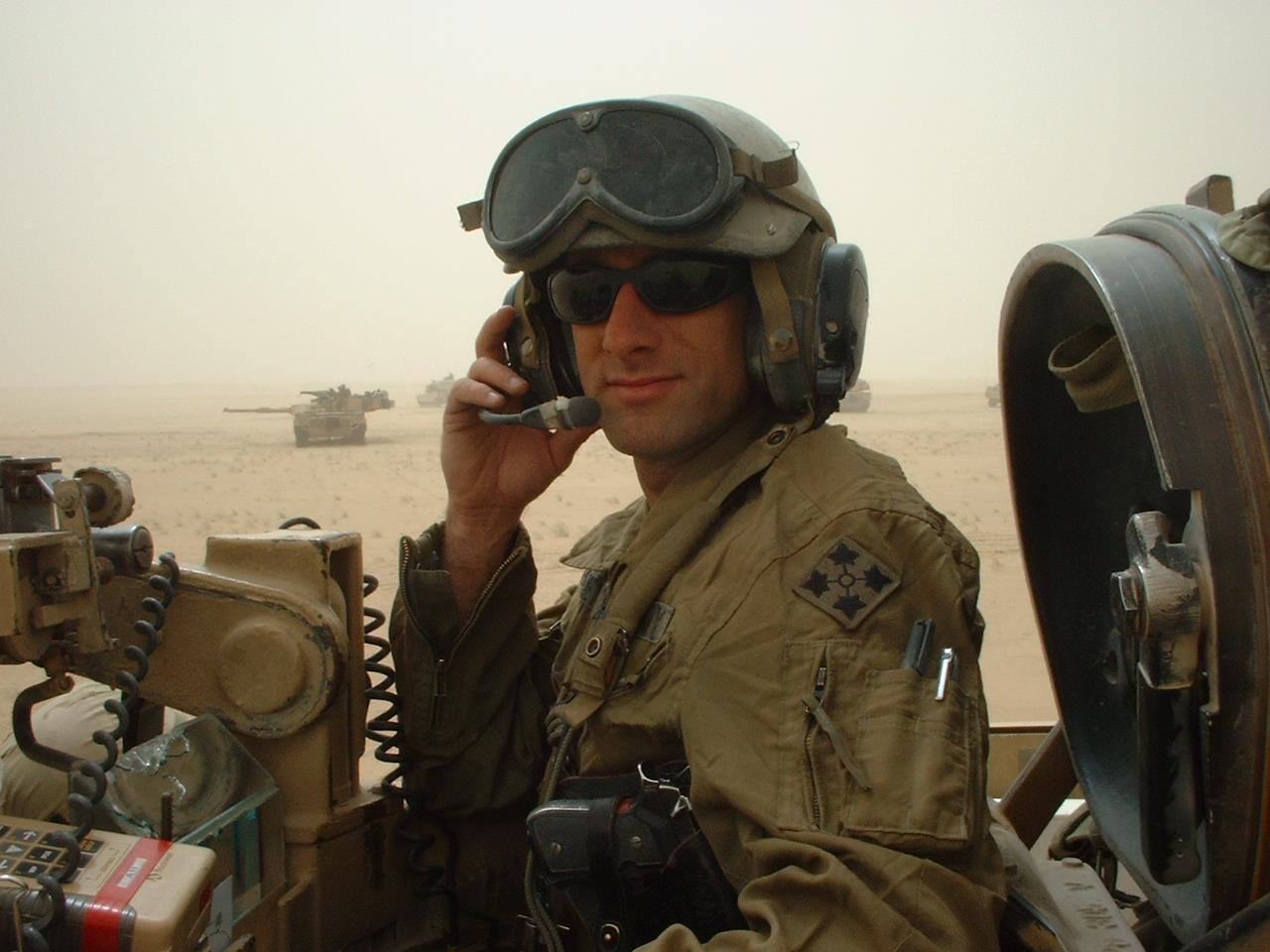 By April 2003, I was in Kuwait as a 1st Lieutenant. A short time later, we crossed the berm into Iraq. Any serious defense quickly dissolved thanks to the Thunder Runs of the 3rd Infantry Division and other behind-the-scenes units, but the insurgency was just getting organized. Two months into the deployment, things were still relatively quiet. I became Executive Officer for the company, and we took up residence in an old Baath party headquarters. After the official war was declared over, the remaining months heated up with cat-and-mouse attacks, constant incoming mortars and rockets, meetings with local leaders, rebuilding efforts, dismounted ambushes, route clearance missions, raids, checkpoint searches, and the coveted weekly shower allotment.
By April 2003, I was in Kuwait as a 1st Lieutenant. A short time later, we crossed the berm into Iraq. Any serious defense quickly dissolved thanks to the Thunder Runs of the 3rd Infantry Division and other behind-the-scenes units, but the insurgency was just getting organized. Two months into the deployment, things were still relatively quiet. I became Executive Officer for the company, and we took up residence in an old Baath party headquarters. After the official war was declared over, the remaining months heated up with cat-and-mouse attacks, constant incoming mortars and rockets, meetings with local leaders, rebuilding efforts, dismounted ambushes, route clearance missions, raids, checkpoint searches, and the coveted weekly shower allotment.
Like Hollywood, there were hundreds of stories to tell of personal courage, brotherly bonds, and shared hardships. The importance of clarity and precision in every communication was reinforced daily – a lesson that continues to guide me.
Toward the end of the deployment, a mutual friend set me up with my soon-to-be wife, Michelle. She had heard that some soldiers had no family back home and wanted to send some cookies overseas. I thought we were being set up on a virtual date. She humored me and decided to see where this would lead. It turns out she’s a huge fan of Buffy the Vampire Slayer; little did she know. We were married later that fall.
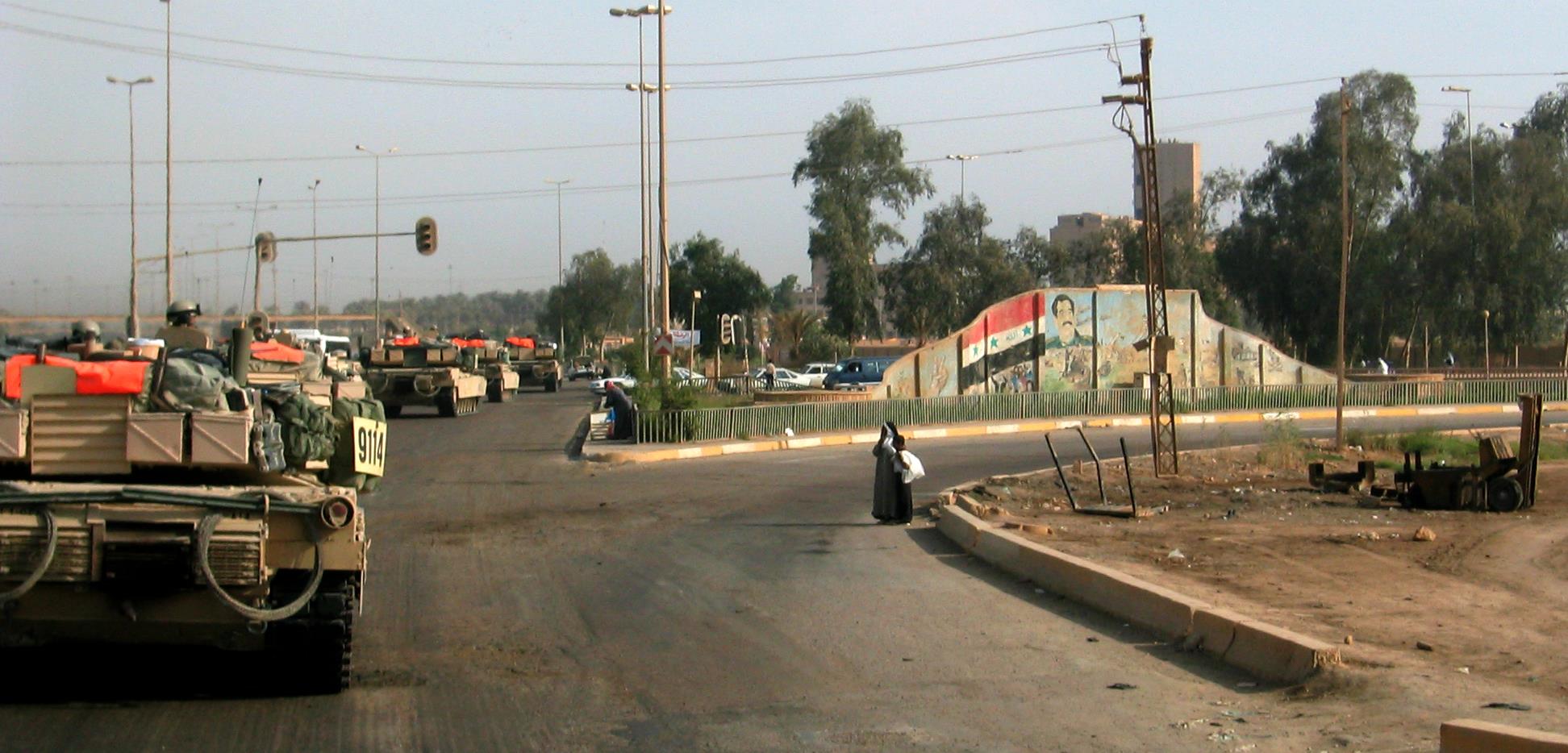
A short year later, I was back in Iraq, this time as a military advisor to the Iraqi National Police Quick Reaction Force. Our cultures differed vastly, but we shared many challenges, successes, and memories. At the end of this deployment, I transitioned from the Armor branch to become a public affairs officer (PAO). This was the best way for me to get back to storytelling.
A year and a half later, I returned to Iraq as PAO for the 3rd Brigade, 3rd Infantry Division. I coordinated outreach opportunities with U.S. and international media, USO tours, media embeds, and engagements with local media. We found remarkable soldiers with incredible stories.
Now, in communications at Page, I blend these experiences. I see how each project we undertake tells a story beyond its physical structure. It's about creating spaces that resonate with those who use them, enhancing their experiences and lives. My role is to ensure that each project's narrative aligns with our firm’s vision and reaches its audience effectively.
The transition from acting to the military to the A&E industry might seem like a script with too many plot twists, but each role has been about understanding and crafting narratives. My journey has taught me that – whether in front of the camera, on the battlefield, or in the office – the most compelling stories are those that connect with others on a personal level.
In my current role, I talk about innovation, community, and impact. The subject matter includes the building and renovation of children’s hospitals, museums, embassies, research labs, condominiums, data centers, airport wings, university master plans, hotels, dental schools, performing arts centers, and so many more places where people live, work, learn, and play.
I'm still in the business of storytelling. Only now, the stories are about creating better spaces and, consequently, better lives.
